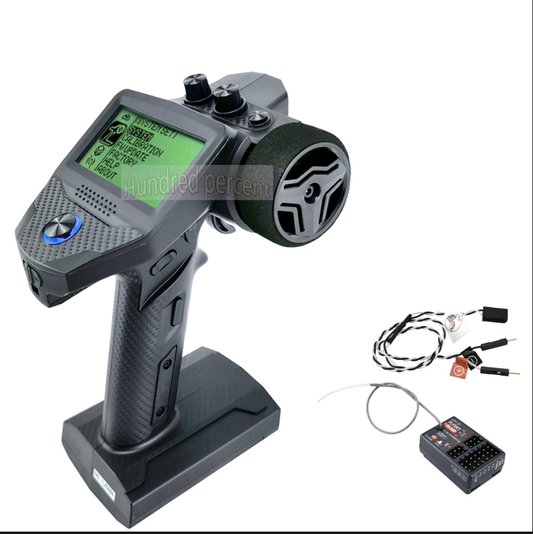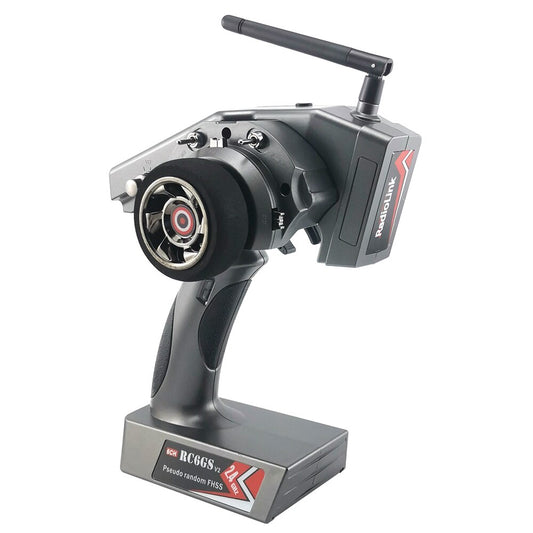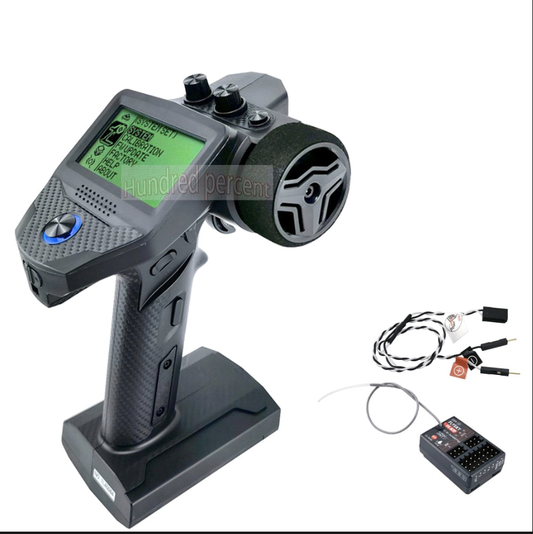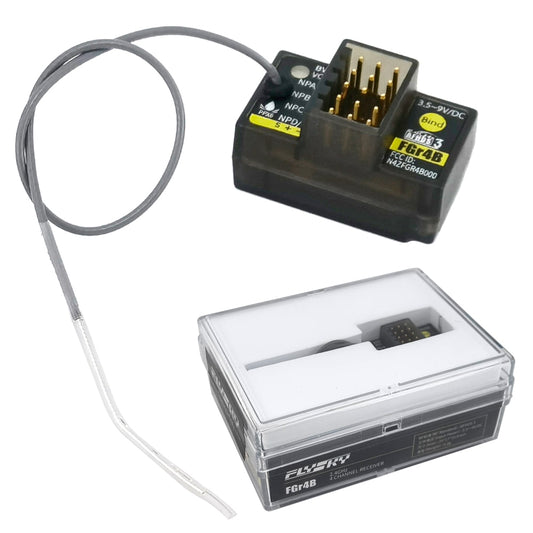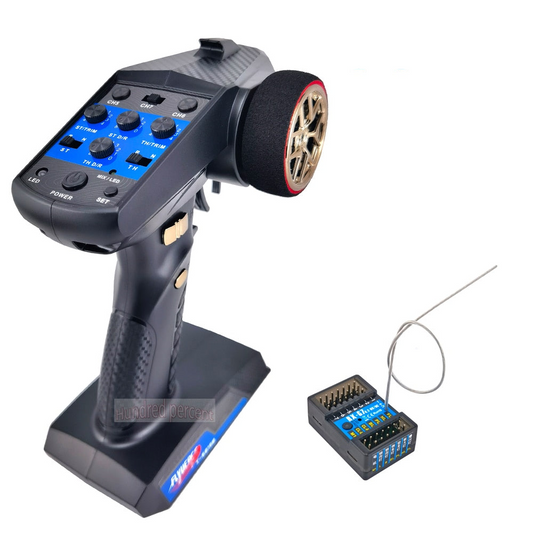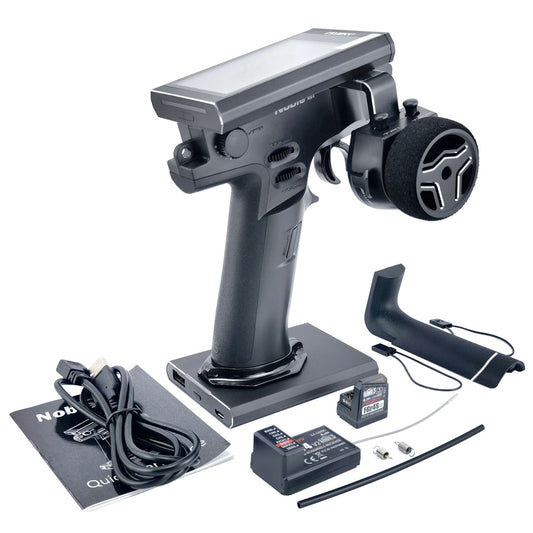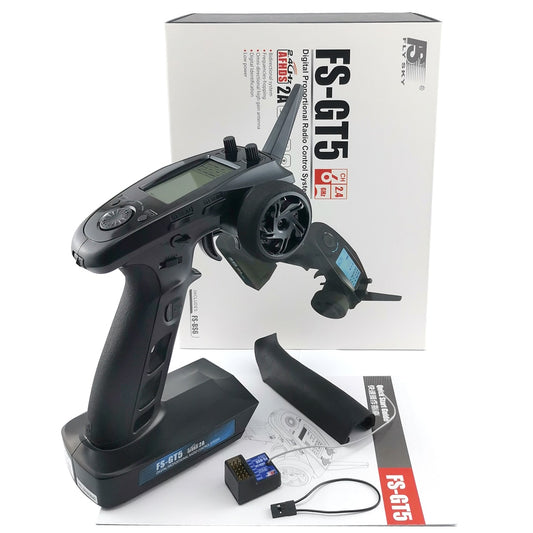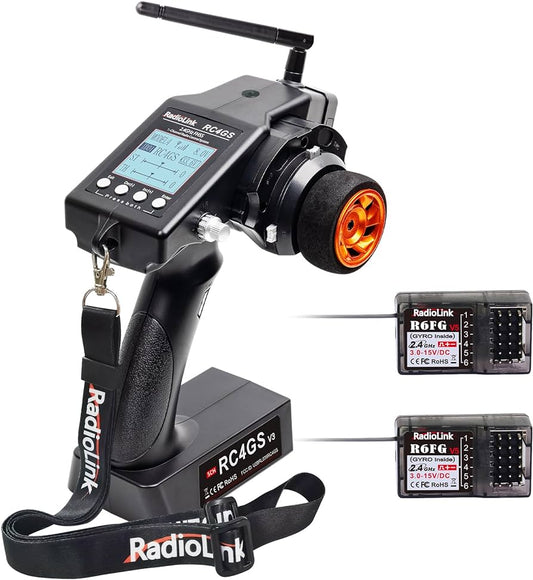Collection: RC Radio
**Digital Radio: Revolutionizing RC Car Control**
Remote-controlled (RC) cars have been a favorite hobby for enthusiasts of all ages, providing endless fun and excitement. Over the years, advancements in technology have transformed the way we control these miniature vehicles. One such innovation is the introduction of digital radio systems, which have revolutionized RC car control. In this article, we'll explore the benefits and advantages of digital radio and how it enhances the RC car driving experience.
**Improved Performance and Responsiveness**
Digital radio systems offer enhanced performance and responsiveness compared to their analog counterparts. With digital communication protocols, such as Frequency-Hopping Spread Spectrum (FHSS) and Direct Sequence Spread Spectrum (DSSS), these radios can transmit signals with greater precision and reliability. This results in quicker response times and smoother control, allowing drivers to have more precise handling of their RC cars.
**Multiple Channels and Frequency Agility**
Digital radios provide multiple channels, allowing users to operate multiple RC cars simultaneously without interference. This feature is particularly useful in racing competitions or group driving sessions, where multiple RC cars are in operation. Additionally, digital radios often employ frequency agility, automatically selecting the most suitable frequency within the available bandwidth to avoid potential signal conflicts or interference from other devices.
**Extended Range and Signal Stability**
Digital radio systems generally offer an extended range compared to analog radios. With improved signal transmission and reception capabilities, drivers can enjoy controlling their RC cars from greater distances. The signal stability of digital radios ensures a consistent connection between the remote controller and the RC car, minimizing the chances of signal dropouts or loss of control.
**Advanced Features and Customization**
Digital radios often come equipped with advanced features and customization options, allowing drivers to tailor their RC car control to their preferences. These features may include adjustable throttle and steering endpoints, exponential control, dual-rate steering, and programmable mixing functions. The ability to fine-tune these settings provides drivers with greater control and enables them to optimize their RC car's performance according to specific track conditions or driving styles.
**Telemetry and Data Feedback**
Some digital radio systems offer telemetry capabilities, enabling real-time data feedback from the RC car to the remote controller. This information can include battery voltage, motor temperature, speed, and other crucial parameters. Telemetry data allows drivers to monitor the performance and condition of their RC cars, making informed decisions during races or extended driving sessions.
**Compatibility and Future-Proofing**
Digital radio systems often have backward compatibility with older analog receivers, making it easy for RC car enthusiasts to upgrade their existing equipment. Additionally, investing in a digital radio system ensures future-proofing, as these systems continue to evolve and adapt to emerging technologies and advancements in the RC car industry.
In conclusion, digital radio systems have revolutionized RC car control, offering improved performance, responsiveness, range, and customization options. With their advanced features and enhanced signal stability, these radios provide drivers with a more immersive and enjoyable driving experience. Whether you're a casual RC car enthusiast or a professional racer, embracing digital radio technology will undoubtedly elevate your RC car adventures to new levels of excitement and precision control.
